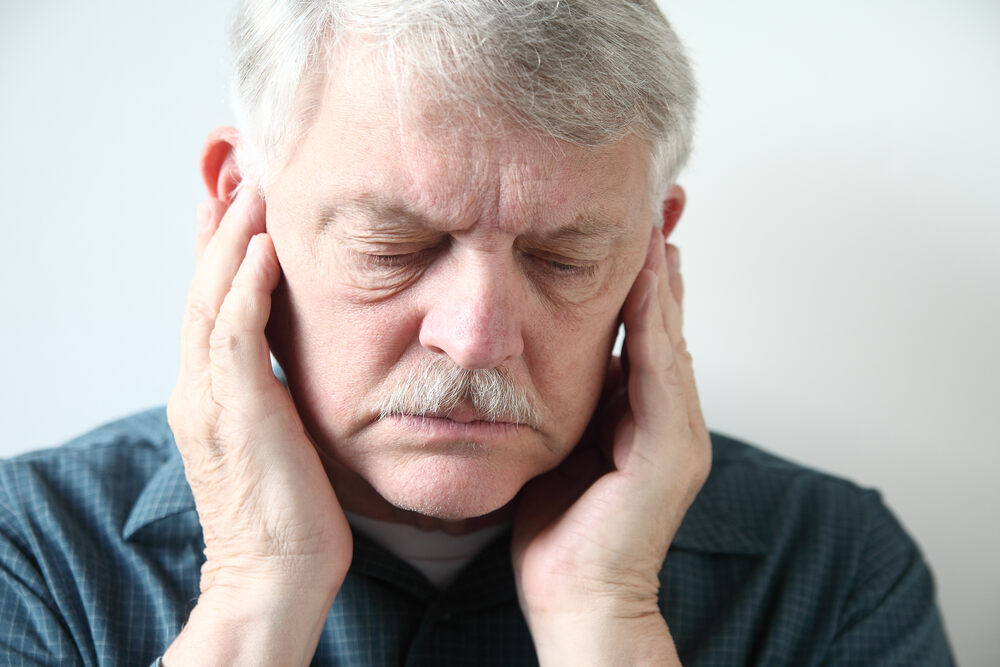TMJ (temporomandibular joint) dysfunction is a condition that affects the muscles surrounding the jaw joint and results in pain and discomfort. TMJ frequently results in issues with the jaw, but it can also significantly affect the ears. If you’re dealing with this issue, be sure to seek out TMJ treatment near you.
What is TMJ?
Your jawbone and skull are joined at the temporomandibular joint (TMJ), which allows you to open and close your mouth. Many conditions that impact this joint and the muscles around it are referred to as TMJ dysfunction. TMJ is often caused by arthritis, stress, jaw injuries, bruxism, and misplaced teeth. Getting immediate TMJ treatment in Saddle Ridge is important to avoid any major complications and discomfort.
How Does TMJ Affect the Ears?
The temporomandibular joint’s proximity to the ear structures is the primary cause of the association between TMJ symptoms and ear problems. There are various ear-related problems that can result from this problem:
Ear Pain
TMJ-associated ear pain is often described as a stabbing or aching that travels from the jaw joint to the ear. This discomfort may be occasional or ongoing and could worsen when speaking or eating.
Ear Fullness or Plugged Sensation
The Eustachian, a little tube that joins the middle ear to the back of the throat, can be impacted by TMJ dysfunction. A sense of fullness or pressure in the ears, like what one experiences on a flight, can occur when the Eustachian tube fails to open and close properly.
Tinnitus
Tinnitus, which is the sense of ringing, buzzing, or other ear disturbances, is another common symptom of TMJ. Its intensity might change, and it can be intermittent or continuous. Though the precise cause of TMJ-related tinnitus is not entirely understood, it appears to have something to do with the muscles and nerves that control jaw movement.
Dizziness and Vertigo
The vestibular system, which aids with balance and spatial orientation, can be damaged by TMJ dysfunction. As a result, some people who have TMJ may feel uneasy, lightheaded, or have vertigo.
TMJ Pain Characteristics
Depending on the patient and the underlying factors contributing to the problem, TMJ discomfort can have a wide range of features and severity. The following are some typical signs of TMJ pain:
Location
The jaw joint, which is situated in front of the ears on both sides of the face, is where TMJ discomfort is often concentrated. The neck, cheeks, or nearby areas, such as the temples, may also be affected.
Dull or Aching Sensation
TMJ discomfort is often described as a dull ache. The intensity can vary from mild discomfort to more severe pain, which may be continuous or intermittent.
Jaw Movement Exacerbation
TMJ pain can often worsen When the jaw moves while chewing, talking, or yawning. Other ways to trigger or aggravate the discomfort include opening the mouth wide or biting down forcefully.
Clicking or Popping Sounds
Some TMJ sufferers may hear clicking, cracking, or grating sounds when opening or closing their jaws. These noises are brought on by the joint disc’s misalignment or displacement within the temporomandibular joint.
Limited Jaw Movement
The jaw’s range of motion may be restricted in addition to TMJ discomfort. This can make it difficult to fully open or close the mouth, making speaking and eating uncomfortable or difficult.
Facial and Ear Discomfort
TMJ discomfort can affect the muscles around the jaw joint and the jaw. Additionally, it could result in ear pain, a sense of fullness, sensitivity to specific noises, and discomfort in or around the ears.
Headaches or Migraines
Chronic TMJ discomfort can cause headaches or migraines that are concentrated in the temples, forehead, or back of the head.
Neck and Shoulder Pain
Neck and shoulder discomfort can be transferred from TMJ-related muscular strain and imbalances. This pain is often related to the interconnected muscles and nerves in the head and neck region.

Treatment and Management
Getting qualified medical guidance is essential if you believe your TMJ-associated ear issues are connected. Our dentist in NE Calgary or an oral and maxillofacial specialist can assess your condition and suggest the most suitable treatment option, which may include:
- Self-care: Applying hot or cold packs, learning stress reduction strategies, and avoiding meals that require chewing or pressure can all help symptoms subside.
- Medications: Temporary relief can be obtained by over-the-counter painkillers, muscle relaxants, or anti-inflammatory medications. Injections of corticosteroids may occasionally be used to treat inflammation.
- Dental Treatments: Symptoms can be reduced by correcting dental problems such as malocclusion or misalignment using orthodontics or dental appliances.
- Physical Therapy: The jaw muscles can be relaxed, and joint mobility can be increased with jaw exercises, stretches, and massages.
- Bite Guards or Oral Splints: The joint is less stressed when custom dental appliances are worn while you sleep to reduce teeth grinding or clenching.
- Surgery: Surgical procedures can be considered in severe instances of TMJ when non-surgical therapies have failed. However, surgery is typically reserved as a last resort.
Schedule Your Consultation Today!
Are you experiencing TMJ pain, or suspect that you may have TMJ disorder? Don’t wait any longer to get relief and answers. Book an appointment today at our neighborhood dental office, where our team of experienced dentists can provide you with customized TMJ treatment.
Take the first step towards finding relief from TMJ pain by calling us at Totally Dental!

